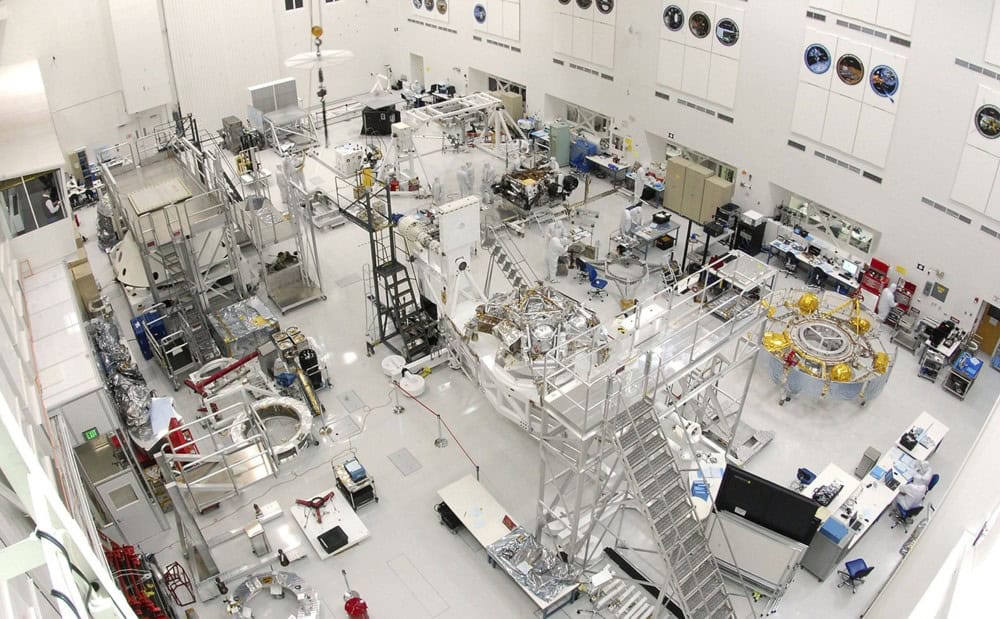Science
NASA’s Jet Propulsion Laboratory Cuts 550 Jobs Amid Restructuring

NASA’s Jet Propulsion Laboratory (JPL) is set to lay off approximately 550 employees as part of an ongoing restructuring process initiated in July 2023. This decision affects around 11% of JPL’s workforce and marks the third round of layoffs at the facility in the last 20 months. Once these layoffs are finalized by the end of the year, JPL’s staff will decrease from about 6,500 at the beginning of 2024 to approximately 4,500.
The recent cuts come on the heels of a significant reduction in personnel, with around 4,000 employees already departing NASA over the past six months through various means, including layoffs, retirements, and voluntary buyouts. JPL, managed by the California Institute of Technology in Pasadena, oversees critical scientific missions, including the Psyche asteroid probe, the Europa Clipper, and the Perseverance rover on Mars. The laboratory also operates the Deep Space Network, which facilitates communication between Earth and unmanned space missions.
Reasons Behind the Layoffs
This latest round of job cuts follows previous layoffs of approximately 530 staff and 140 contractors in February 2023, as well as an additional 325 employees in November 2023. Despite the scale of the layoffs, JPL Director Dave Gallagher asserts that these measures are not directly linked to the ongoing US government shutdown that began on October 1, 2023. In a message to employees, Gallagher emphasized that the layoffs are “essential to securing JPL’s future by creating a leaner infrastructure, focusing on our core technical capabilities, maintaining fiscal discipline, and positioning us to compete in the evolving space ecosystem.”
In contrast, Judy Chu, the Democratic Congresswoman representing the district that includes JPL, expressed concerns about the impact of these layoffs. “Every layoff devastates the highly skilled and uniquely talented workforce that has made these accomplishments possible,” she stated. “Together with last year’s layoffs, this will result in an untold loss of scientific knowledge and expertise that threatens the very future of American leadership in space exploration and scientific discovery.”
Impact of Policy Changes
The recent cuts have sparked discussions about the broader implications of governmental policies on scientific exploration. John Logsdon, professor emeritus at George Washington University and founder of the university’s Space Policy Institute, attributed the layoffs to the funding priorities set by the Trump administration. He noted, “The administration gives low priority to robotic science and exploration, and has made draconic cuts to the science budget; that budget supports JPL’s work. With these cuts, there is not enough money to support a JPL workforce sized for more ambitious activities. Ergo, staff cuts.”
As JPL proceeds with its restructuring, the impact on the future of space exploration and scientific discovery in the United States remains uncertain. The laboratory’s ability to maintain its current missions and pursue new initiatives may be significantly affected by the reduced workforce and ongoing budget constraints.
-

 Health3 months ago
Health3 months agoNeurologist Warns Excessive Use of Supplements Can Harm Brain
-

 Health3 months ago
Health3 months agoFiona Phillips’ Husband Shares Heartfelt Update on Her Alzheimer’s Journey
-

 Science2 months ago
Science2 months agoBrian Cox Addresses Claims of Alien Probe in 3I/ATLAS Discovery
-

 Science2 months ago
Science2 months agoNASA Investigates Unusual Comet 3I/ATLAS; New Findings Emerge
-

 Science1 month ago
Science1 month agoScientists Examine 3I/ATLAS: Alien Artifact or Cosmic Oddity?
-

 Entertainment5 months ago
Entertainment5 months agoKerry Katona Discusses Future Baby Plans and Brian McFadden’s Wedding
-

 Science1 month ago
Science1 month agoNASA Investigates Speedy Object 3I/ATLAS, Sparking Speculation
-

 Entertainment2 months ago
Entertainment2 months agoLewis Cope Addresses Accusations of Dance Training Advantage
-

 Entertainment4 months ago
Entertainment4 months agoEmmerdale Faces Tension as Dylan and April’s Lives Hang in the Balance
-

 World3 months ago
World3 months agoCole Palmer’s Cryptic Message to Kobbie Mainoo Following Loan Talks
-

 Science1 month ago
Science1 month agoNASA Scientists Explore Origins of 3I/ATLAS, a Fast-Moving Visitor
-

 Entertainment4 months ago
Entertainment4 months agoMajor Cast Changes at Coronation Street: Exits and Returns in 2025









